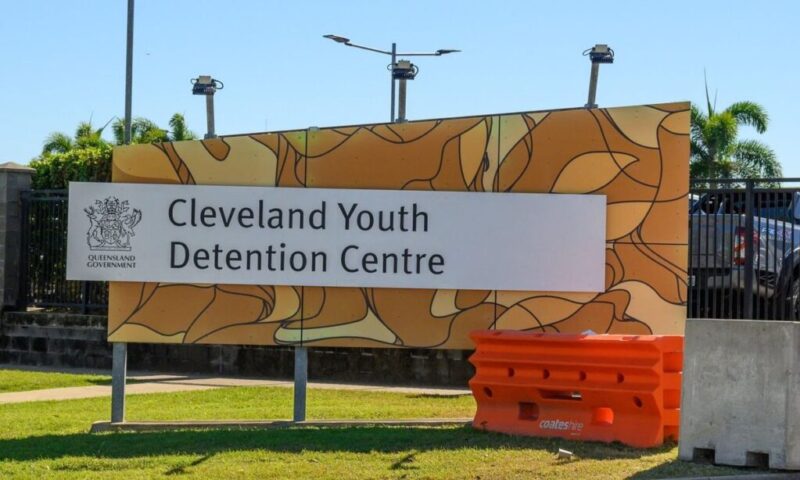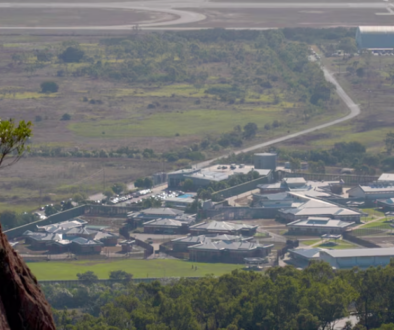Class action flagged against Queensland government over treatment of young people in detention
In short:
Levitt Robinson Solicitors is preparing a class action lawsuit against the state of Queensland and the Department of Youth Justice.
The legal action is being taken on behalf of youth detention centre detainees who were subject to “unlawful” and “punitive” conditions.
The firm is seeking compensation for detainees who were locked down, held in unsanitary conditions, or denied access to education and time outside their cells.

Queensland’s treatment of children in youth detention centres is set to come under further scrutiny, with a national law firm preparing a class action against the state and the Department of Youth Justice.
The state has long faced criticism for its youth justice system, where First Nations children are more than 25 times more likely to be incarcerated than non-Indigenous children. The latest Closing the Gap data shows that Queensland accounts for more than 45 per cent of all Indigenous children and young people in custody across Australia.
This week, Sydney-based firm Levitt Robinson announced it is preparing to launch legal action on behalf of detainees at Cleveland, Brisbane, West Moreton, Sir Leslie Wilson, and John Oxley youth detention centres.
Partner Dana Levitt told National Indigenous Times the case would focus on the punitive and unlawful conditions in which children are being held.
“What we’re looking at is doing something similar to what we’ve done in Western Australia,” she said. “So, looking at the conditions to which children have been subject to in detention, to the extent that they’re unlawful, and doing something about it.”
The firm previously ran the landmark 2016 case Wotton v State of Queensland, which successfully challenged the treatment of Indigenous Palm Islanders in 2004, resulting in an apology from the state government to Palm Islanders for the “violence and discrimination to which they were subjected by police”.
Issues in youth detention
Cleveland Youth Detention Centre in Townsville has been plagued by reports of staff shortages and overcrowding. In August last year, the state’s prison watchdog raised human rights concerns, finding that children were often locked in their cells alone due to staffing shortages, or placed in “separation” — the Queensland government’s term for solitary confinement — rooms without basic facilities such as toilets or running water.
Ms Levitt said that while Cleveland has been in the news, she believed similar conditions exist across other centres.
“So, while Cleveland was initially the focus… I’m certainly not ruling out looking at other detention centres as well,” she said.
She said the firm was now seeking to speak with anyone who had been detained in Queensland’s five youth centres from 2005 onwards.
“My primary focus is talking to as many kids — some of whom will now be adults — who have been detained in Queensland, to find out just how bad their experiences have been, and for how long they’ve been bad,” Ms Levitt said.
Queensland’s youth justice policies have been heavily criticised, particularly after the government introduced its “adult time, adult crime” laws. The government itself acknowledged the laws “may lead to sentences for children that are more punitive than necessary to achieve community safety”.
A report released last year detailed the cases of two disabled Indigenous boys who died after being held in separation for extensive periods in youth custody. Combined, they spent more than 600 days in detention, much of it due to staff shortages.
Last month, Human Rights Law Centre’s First Nations Director Maggie Munn said punitive laws were entrenching inequality and causing lasting damage.
“Children deserve care, not cages, and no child should grow up in a prison cell,” Munn said.
In May, more than 100 First Nations leaders issued a joint statement condemning what they described as the “ongoing violation of human and cultural rights,” particularly “the targeted harm perpetuated against our children and young people”.
“We argue that what is happening in Queensland are egregious breaches of human rights against children, reminiscent of past Queensland Government policies and practices separating children and families,” the statement said.
Youth justice issues across the country
Levitt Robinson has also brought cases in Western Australia over the alleged mistreatment of juveniles at Rangeview, Banksia Hill, and Unit 18 — a maximum-security wing at Casuarina Prison where 16-year-old Aboriginal boy Cleveland Dodd took his own life in 2023.
In Queensland, the firm says it will seek compensation for detainees who were locked down because of staff shortages, held in unhygienic cells without running water or toilets, or denied access to education and time outside their cells.
One lawyer previously told National Indigenous Times that Queensland’s Human Rights Act was not “worth the paper it is written on”. Ms Levitt said the firm would instead rely on federal law.
“I think we’re lucky that we have Commonwealth anti-discrimination legislation that is worth the paper it’s written on and indeed makes claims like this actionable,” she said.
“So, we’re not looking at it from a Queensland perspective; we’re looking at it in terms of human rights violations at a Commonwealth level.”
She added that the problems in Queensland mirror those in WA.
“Kids being locked down in their cells for days on end; not being able to communicate and interact with their peers; not getting access to education; being subject to excessive uses of force,” she said.
“Because, if you’ve been locked up in your cell for days on end, the likelihood that you’re going to be polite and well behaved when they finally let you out is not great, is it?”
Contact us
Please provide a brief description of your claim.

